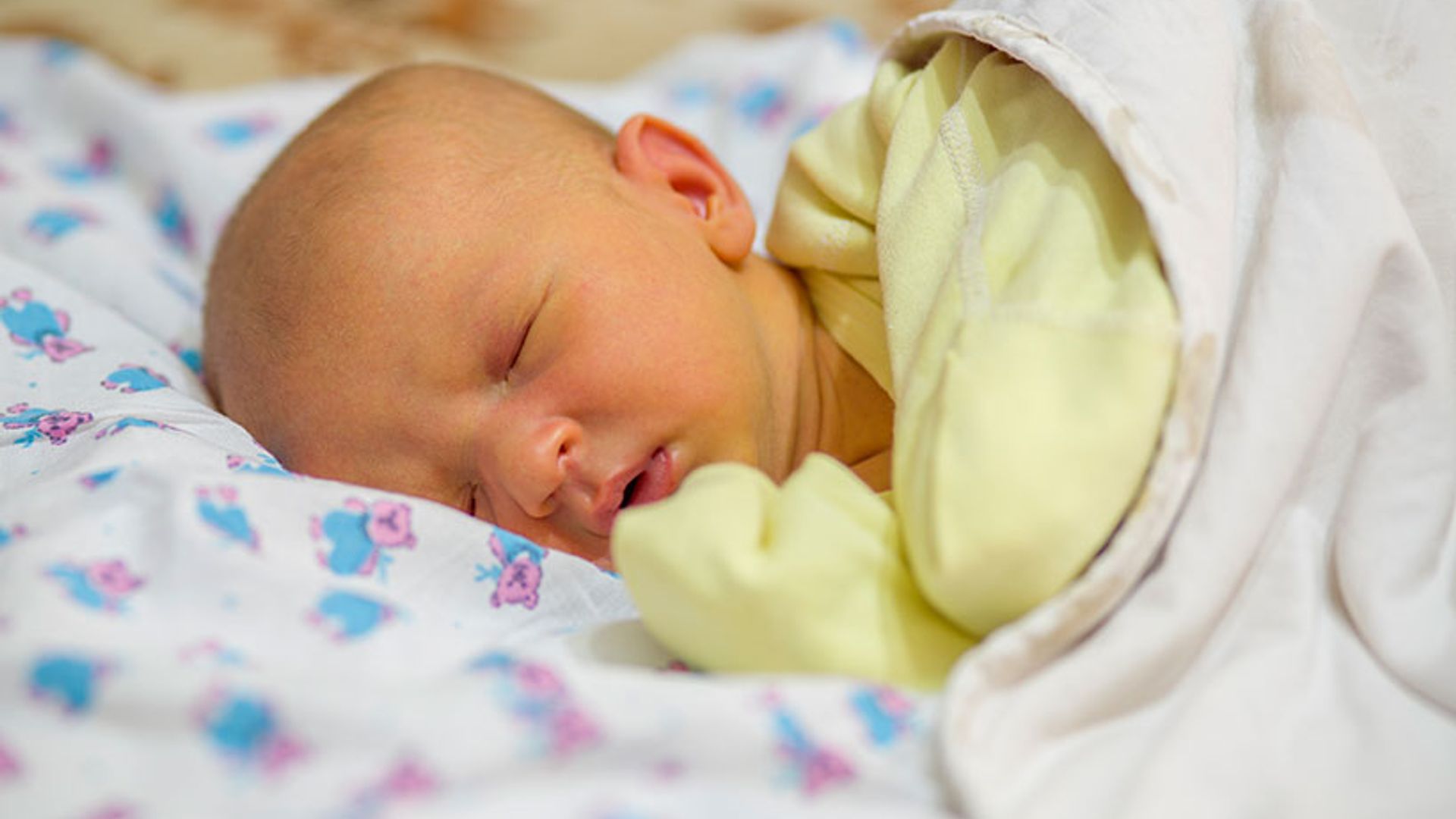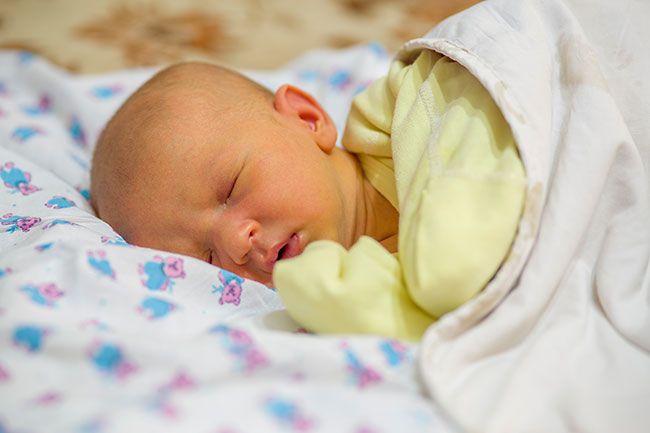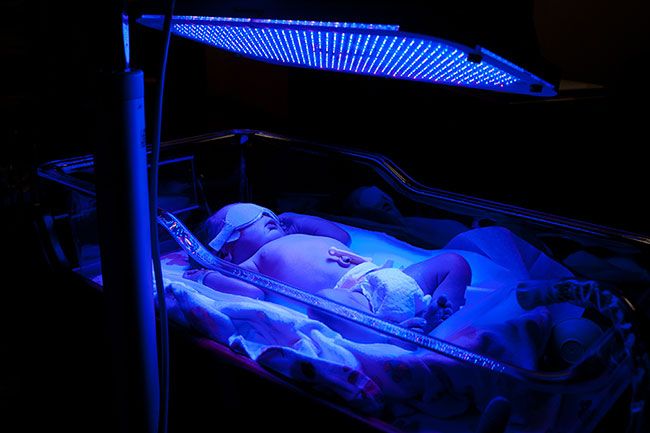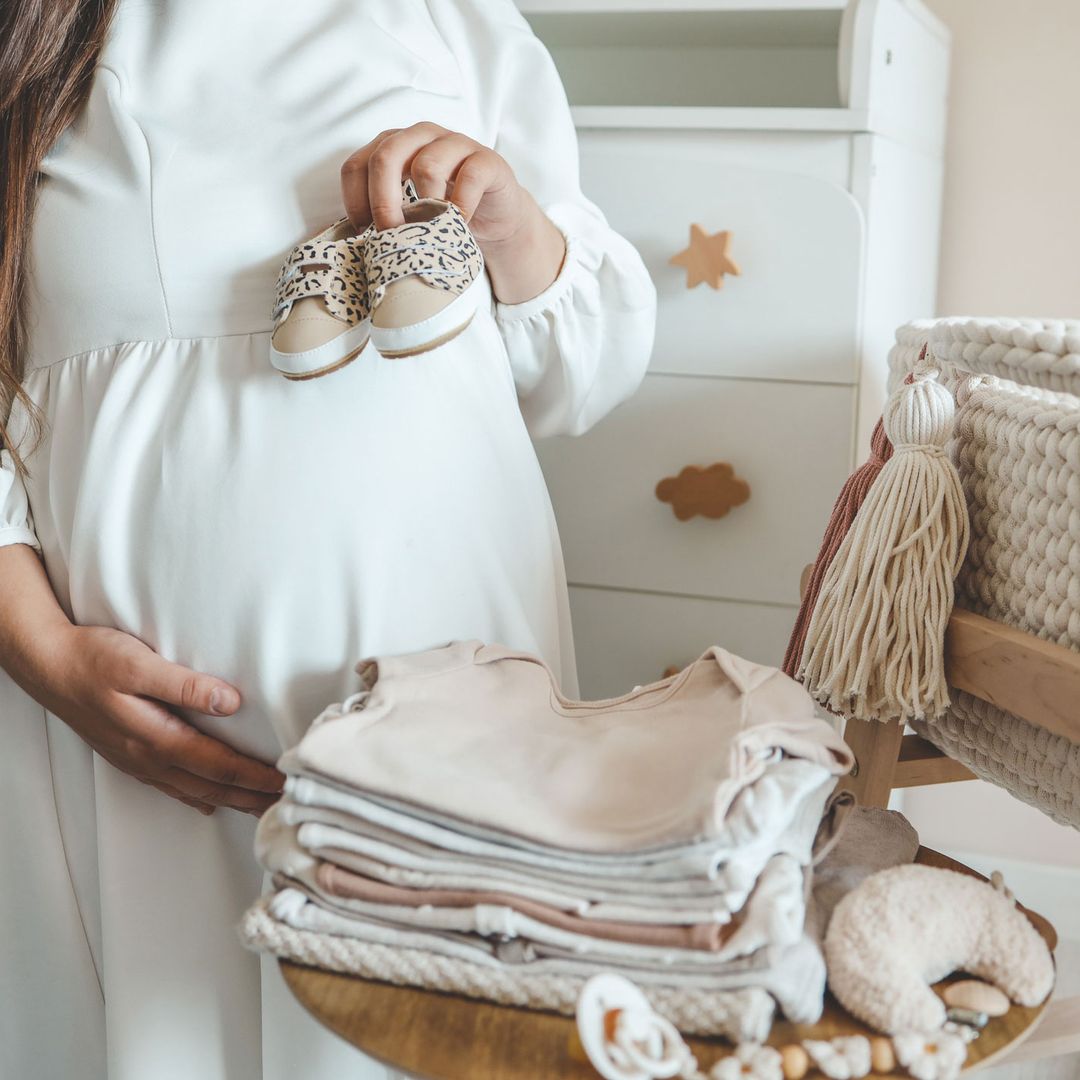What is jaundice?
Jaundice is a very common and usually harmless condition which is present in newborn babies. Neonatal jaundice, which is the medical term for jaundice in babies, causes the yellowing of the skin and the white of the eyes due to high bilirubin levels. Other symptoms can include the hands or soles of the feet to become yellow, dark/yellow urine, as opposed to a newborn baby's colourless urine, or a much paler poo than normal.
In the UK, a baby will be examined for signs of jaundice within 72 hours of being born, during the newborn physical examination. It's estimated six out of every ten babies develop jaundice, including eight out of ten babies born prematurely.
What causes jaundice?
According to the NHS, it’s caused by the build-up of bilirubin in the blood and it’s common because babies have a high level of red blood cells in their blood, which are broken down and replaced frequently. The liver in newborn babies is also not fully developed, so it's less effective at removing the bilirubin from the blood.
How can jaundice be treated?
In most cases it doesn't require treatment as the symptoms normally disappear after a few days. As bilirubin can be cleared from the baby's body via the kidneys, a mother may be advised to increase breastfeeding to encourage the baby to produce more urine. However, if the levels of bilirubin rise quickly about a week after the birth, it may have been caused by breast milk jaundice - a reaction to a harmless substance in breast milk. In this case the mother may be asked to switch to formula to see if levels drop.
Serious treatment is usually only recommended if tests show a baby has very high levels of bilirubin in their blood because there's a small risk the bilirubin could pass into the brain and cause brain damage. If a baby's bilirubin levels need to be quickly reduced, there are two main treatments that can be carried out:
Phototherapy – a special light that shines on the skin, which alters the bilirubin into a form that can be more easily broken down by the liver. The baby needs to be naked during the treatment so that as much skin as possible is exposed to light. Eyes are covered to protect them during treatment.
An exchange transfusion – it's only used in severe cases of jaundice and it's a type of blood transfusion where small amounts of your baby's blood are removed and replaced with blood from a matching donor.
Most babies respond well to treatment and can leave hospital after a few days.










